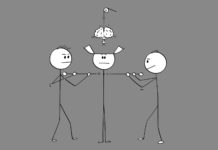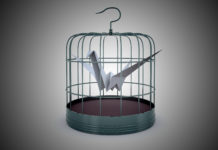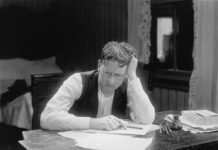Federal Mental Health Agencies: Remember Ivory!
Ivory McCuen needed warmth and a home the night she died. Court-ordered psychiatric drugs deliver neither warmth nor a home. Federal agencies need to consider people with lived experience.
How Psychiatry Turned General Difficulties in Adaptation into “Real Illnesses Just Like Diabetes”
Though many psychiatrists have abandoned the "chemical imbalance" concept, they now promote the use of a pre-scientific notion that the only criteria for defining disease is the presence of distress or impairment.
Mental Health Survival Kit, Chapter 2: Is Psychiatry Evidence Based? (Part 2)
“Psychiatry’s Starter Kit”: Many people start their psychiatric "careers" by consulting their family doctor with some problem many of us have from time to time and leave with a prescription for a depression pill.
How to Support Healing from Psychosis Versus Imposing Social Control
This article is written for the loving supporter or social worker. My hope is that it will help you gain strategies for how to handle the relationship with someone experiencing psychosis.
Informed Consent Must Reflect Information from Online Withdrawal Forums
Online withdrawal forums document an assortment of risks associated with discontinuation of psychiatric drugs. Such information is readily available and must be disclosed during informed consent.
Mental Health Survival Kit, Chapter 2: Is Psychiatry Evidence Based? (Part 1)
Psychiatric diagnoses are not built on science but are consensus-type exercises where it is decided by a show of hands which symptoms should be included in a diagnostic test.
Our Culture Is Abusive
Emotions are viewed as dangerous liars in this culture, and those who express them in a way that makes people in power uncomfortable are diagnosed as "mentally ill."
Patients as Partners: A Social Empowerment Approach to Health and Mental Health
Hugh Polk and Ann Green discuss social medicine with Jessie Fields, a medical doctor working in Harlem, a community leader, and an advocate for transforming our health and mental health care system.
Torture at Lake Alice “Hospital”, New Zealand
Lake Alice was a psychiatric institution in New Zealand connected with hundreds of reported abuses, especially of children. A new Royal Commission evidence-gathering hearing is set for this year.
Mental Health Survival Kit, Chapter 1: This Book Might Save Your Life
The term “psychiatric survivor” says it all in just two words. In no other medical specialty do the patients call themselves survivors because they survived despite being exposed to that specialty.
Remembering Jennifer Kinzie (1979-2021)
Jennifer Kinzie was a licensed mental health counselor who used her lived experience to guide her work—not only as a counselor and therapist, but also as a volunteer with psychiatric survivor groups.
The BBC, Harrow, and a Public Left in the Dark
The recent report by the BBC on medication-free treatment in Norway, when viewed in conjunction with the media silence on Martin Harrow's latest publication, reveals why the public remains misinformed about the long-term effects of antipsychotics.
Book Review: “Prescription for Sorrow” by Patrick D. Hahn
There are quite a few books published about the lack of benefit and harm caused by so-called "antidepressants." Prescription for Sorrow, by Patrick Hahn, is simply the best one I have read.
In Memoriam: Birgitta Alakare
On February 19, 2021, the world lost Birgitta Alakare, the former chief psychiatrist at Keropudas Hospital in Tornio, Finland and a pioneer in the development of Open Dialogue.
Insane Medicine: Epilogue
I wanted to interrogate the assumptions that pervade theory, research, and practice in mental health. You can see the emptiness of the empirical and philosophical paradigms in circulation.
Online Experts on Withdrawal
Online communities are stepping in to help people facing withdrawal effects amass information and receive support for their withdrawal experiences.
The Great Slowdown: Why Breaking Down Is Waking Up
Who is really more ill? A person who responds in a natural way to trauma? Or the indifferent society that locates so-called ‘disorders’ within the people that it harms, rather than itself?
The Role of Love in Mental Health
The one core ingredient on which any recovery from emotional distress depends is the one that never makes an appearance in any medical handbook or psychiatric diagnostic manual—that is, love.
Welcome to Planet Psychiatry
With the leadership of industry and their cosseted, lapdog doctors, psychiatric medications are prescribed indiscriminately to nearly anyone entering a physician’s office with a psychological complaint.
Insane Medicine, Chapter 10: The Paradigm Shift Is Inevitable
We must advocate for policies that create environments that are more nurturing for us all in a society that helps provide people with meaning, a sense of community, and a sense of civic duty.
Kendra’s Law Must Be a Beginning, Not an End
I believe that, as things are right now, forced treatment can be justifiable. But we need to move studies and research forward, move mental health treatment forward into an era where forced treatment is obsolete.
Left-Wing Behavioral Genetics? A Closer Look at the Genetic Evidence in “The Cult of...
Behavioral genetic “discoveries” are a mirage, a house of cards that ignores contradictory evidence from countless real-world examples and research findings from other fields, that collapses under serious critical analysis.
Insane Medicine, Chapter 9: The Worried Parent (Part 2)
Once you have managed to shift the relational dance for a while, you will start to get on with your new life; hopefully you have got far enough forward to establish a new “script”; a new family relational dance.
Dr. Pies’ Non-Apology
Dr. Pies' summary of Schroder et al's study is misleading. In fact, the researchers found that the more times a person was hospitalized, the more likely they were to believe the chemical imbalance myth.
Intensive Home Treatment for Acute Mental Disorders: An Alternative to Hospitalization
Unlike hospital treatment, IHT is attentive to family issues and helping negotiate re-entry into work or school. It is also consistent with the recovery principle of least intrusive interventions.

































